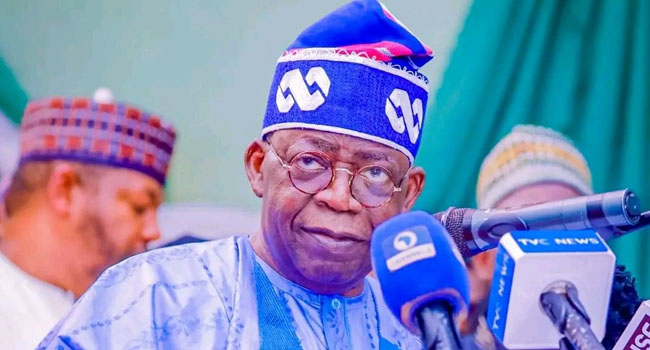The recent free fall of the Naira, plummeting from N460 to a staggering N1,600 at the official rate, has cast a dark shadow over Nigeria’s economic landscape. With inflation soaring from 22% to 30% within a year, the consequences are dire – exacerbating poverty, fostering frustration, desperation, and fueling a surge in insecurity. The value of the Naira is the economic heartbeat of the nation, impacting the lives of every Nigerian. As the Naira weakens, so does the economic well-being of the average citizen.
In this critical moment, the responsibility to protect and restore the Naira rests not only on the government but on the shoulders of every Nigerian. While the government bears a significant share of the blame, the path to redemption lies in collective action. Drawing inspiration from past experiences in countries like Germany, Zimbabwe, and Venezuela, the key out is straightforward and common. Here’s a comprehensive blueprint for restoring the Naira to a value of less than N200 per USD1.
Nigeria should first leverage foreign investment for large-scale agricultural production and solid minerals development. The oil sector is bringing foreign exchange because there is a massive foreign investment in the sector, so also, if we want to grow the Agricultural and Solid mineral sectors, large foreign investment must be injected into the sectors.
Leasing agricultural fields to foreign investors, particularly for products with global demand, can stimulate economic growth. The federal and state governments must take the lead in the large-scale production of these global cash crops. We have high-potential cash crops that can generate a significant inflow of foreign exchange to Nigeria.
For example, in 2022, Thailand generated up to $9 billion from exports of Cassava alone. While Nigeria is the largest producer of cassava worldwide, a lack of storage and processing facilities results in the loss of more than 30% of the cassava produced, with the rest being consumed, contributing very little to our export basket.
There’s no need to focus only on famous cash crops like Cocoa, Cotton, Ginger, Sesame, and Maize; there are other products like Cassia tora seeds, soybeans, palm oil, and others that also have high global demand. We can allocate a specific target of certain crops for some states, keeping a target export destination and quantity in mind.
Regarding solid minerals, state governments must play a vital role in attracting large investors to exploit the licenses they hold for large-scale mining. They also need to address illegal mining, which drives away legitimate large-scale producers. The mining sector should be standardized, similar to the oil sector. One reason why state governments are not so active in the mining sector is the monthly allocation they receive from the federation, providing no incentive for the development of solid minerals. Allowing states more access to resources and powers and discontinuing or reducing federation allocations could encourage states to maximize the untapped potential in agriculture and solid minerals.
Another strategy is reducing importation through import substitution to reduce the importation of non-essential goods that can be produced locally so that we can conserve foreign exchange. For example, within just last year’s second quarter (three months), we spent N3 trillion importing manufactured goods. Most of this bill could be substituted for locally produced goods or alternative demand. Within these three months, Nigerians spent N734 billion importing used cars. If we can build adequate mass transport systems, the demand for importation of used cars will reduce.
Currency swap is an option too, but in a different way. This type of currency swap arrangement is where Nigeria receives foreign currency at an agreed-upon rate in exchange for access to agricultural and mineral resources, addressing both economic and resource needs. No country will agree to swap its currency for Naira, but many countries will accept swapping currency for agricultural and mineral resources.
Nigerians must stop treating the dollar like a commodity. Purchasing dollars not for any foreign transaction but solely to store value must be stopped. Nigerians, especially the wealthy and those in government, must refrain from converting their excess Naira to dollars for storage. Nigerians must be patriotic and sacrifice these illusional gains to save the Naira. The hoarding of dollars must be stopped by limiting the Naira in circulation, encouraging digital currency, and strictly monitoring cash movement.
There are more dollars in the hands of people than in the banks, which is why the Central Bank of Nigeria (CBN) cannot control the market. Since the CBN has limited control, Nigerians should only demand the dollar when there is a genuine need for it, specifically for foreign goods or services.
Increased productivity, import substitution, and strict adherence to genuine demand for the dollar are essential. By doing so, the black market for dollars can be eliminated, as there will be enough dollars in the banking system to meet all legitimate demands.
The government must cut its spending and prioritize key areas. A reduction in the deficit will free up more foreign exchange for market control. The government must cease borrowing, as the burden of debt makes it difficult to control the exchange rate when some of the available dollars are used for debt servicing.
The CBN must halt the production of more Naira; making the Naira scarce could help improve its value. The scarcer the Naira, the more valuable it becomes. A scarcer and more valuable Naira will be critical in this strategy.
Redenominating the Naira notes could also be an option only after improving the export sector. This could be achieved by removing one zero from each Naira note to restore confidence in the currency. This would mean that a N1000 note would become N100 at its face value. If implemented today, the value of the dollar would become N160. This step could help build confidence in the Naira.
People must have confidence in the Naira, regardless of the amount they possess. Confidence in the Naira is an essential feature of a strong currency. Other countries that faced similar challenges resorted to even reintroducing a new currency and, at some points, demonetizing their currencies, allowing any desirable foreign currency to be used as a means of exchange in their countries. This is the worst-case scenario.
There are no two ways about it. The art of saving a currency is the art of production. No monetary or fiscal policy will work if we don’t produce for exports. A stronger Naira is possible only with stronger patriotism. Those hoarding dollars and using sentiment to inflate the value of the dollar are the true enemies of the economy; by hoarding the dollar, they are increasing inflation and thereby reducing the purchasing power of poor people’s income and the purchasing power of what they will eventually gain in Naira value. So, they are digging a hole for themselves, too. With patriotism, increased production for exports, reduced importation, and adequate dollars in the banking system, the dollar could be pegged at below N200.
Ahmed Adamu
Associate Professor of EconomicsNile University of Nigeria, Abujaahmadadamu1@gmail.com


